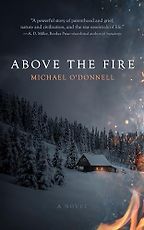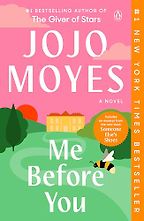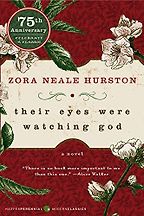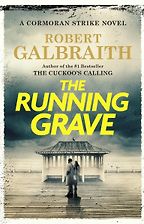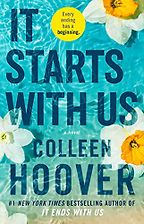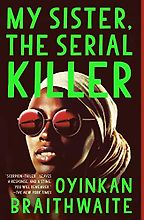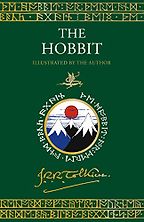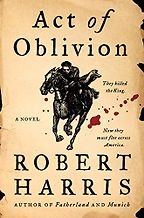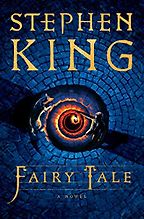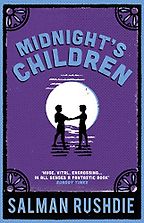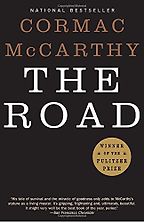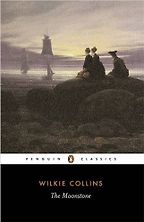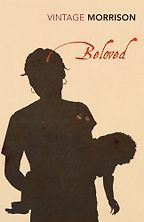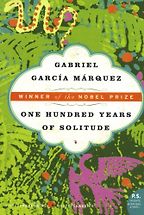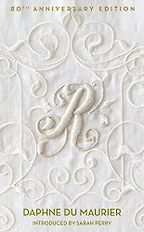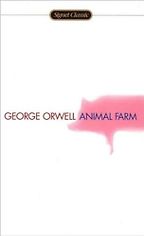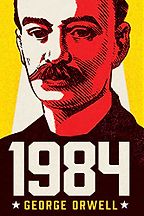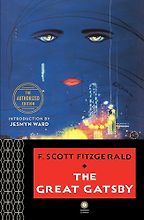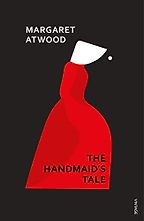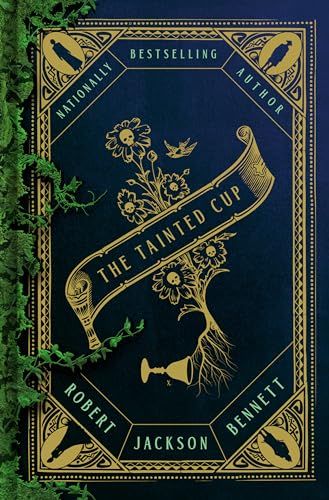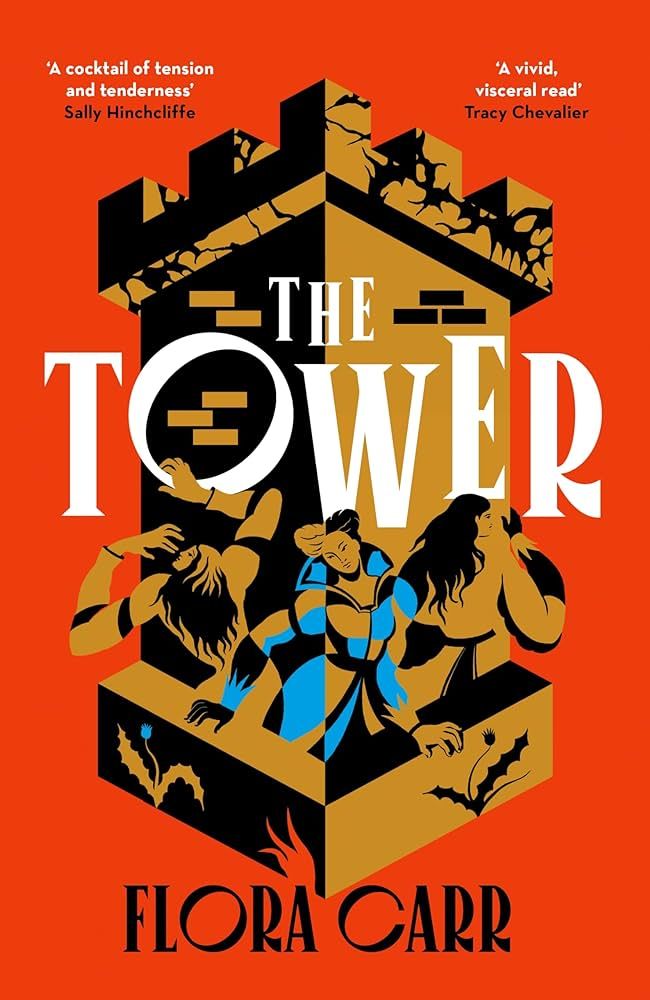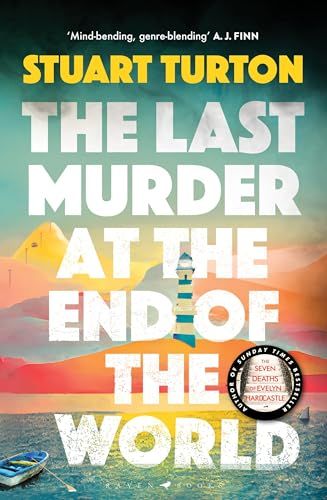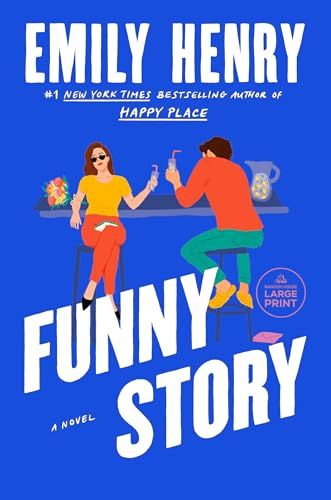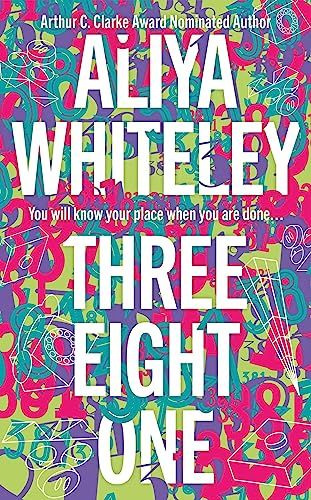Popular Fiction Books
Last updated: July 25, 2024
Our collection of popular fiction books includes recent bestsellers as well as some classic works of fiction that have been recommended on Five Books. With older books, it may take a chapter or two to adjust to the language, but it's well worth it because there's a reason these books were bestsellers at the time.
“This one is about Doug, a widower from the Boston area, and his seven-year-old son. They are trying to deal with their grief—the loss of a wife and mother—by going on a sojourn to New Hampshire, and suddenly the world kind of ends. No one really knows what has happened, and they can’t communicate with the outside world. There seem to be fires that are happening down below, and they are unsure of what to do. Has there been a political disaster? Have nuclear bombs dropped? What is going on? They go further into the wilderness, essentially to keep away from whatever is happening where there are more humans. They must survive through this year—the man and his son together…Again, it is very psychological and emotional. That is what I liked about it. It is a quiet, post-apocalyptic novel, although we do not even know if it’s post-apocalyptic because we don’t know what’s happened.” Read more...
The Best Audiobooks of 2024 (so far)
Michele Cobb, Publisher
The Last Devil To Die
by Richard Osman
In the fourth book of the Thursday Murder Club series, Richard Osman's elderly amateur sleuths face their biggest challenge yet when a dangerous package goes missing—which sees the body count immediately climbing. "If you liked the first three Thursday Murder Club novels, as I did, as millions do, you’ll like this new one too," promises Robert Crampton in The Times. "Osman can do comedy, pathos, pace, plot and social observation." A joyous return to Cooper's Chase.
“Hurston gives us one of the first true love stories in African American writing.” Read more...
The Best African American Literature
Farah Jasmine Griffin, Literary Scholar
The Running Grave
by Robert Galbraith
The Running Grave is the 7th book in Robert Galbraith (aka JK Rowling)'s Cormoran Strike series, one of the most enjoyable crime fiction series out there. It features Cormoran Strike, a British war veteran-turned-private investigator, and Robin Ellacott, who starts out as a temp but becomes his business partner. In The Running Grave, Robin goes undercover to join a religious cult on behalf of a client who is worried sick about his son. The books in this series tend not to be fast-paced thrillers, but get you into the daily lives of the main characters, with the plot/mystery driving the story forward. If you haven't read any of the books yet, it's best to start with the first, The Cuckoo’s Calling, published exactly a decade ago.
It Starts With Us
by Colleen Hoover
Fans of blockbuster romance author Colleen Hoover must not miss her long-awaited sequel to her beloved and perennially bestselling It Ends With Us. Picking up right where the epilogue for It Ends with Us left off, we see the world through the eyes of both Lily and Atlas as they embrace a second chance at true love—that is, if Lily’s ex-husband Ryle will let them.
“Set in Lagos, it follows hardworking nurse Korede as she attempts to cover up the crimes committed by her insatiable sister Ayoola, a beautiful sociopath with black widow tendencies. As well as a crime thriller, it’s a razor-sharp dissection of gender dynamics that never feels preachy or pretentious.” Read more...
Editors’ Picks: Notable Books of 2019
Cal Flyn, Five Books Editor
The Hobbit
by J R R Tolkien
The Hobbit introduces the creature known as a hobbit, about half the height of a human, beardless, and with hairy feet. In particular, the book introduces the figure of Bilbo Baggins, a hobbit in his 50s who enjoys eating, smoking his pipe and taking it easy, and who is very emphatically NOT in search of an adventure. Unfortunately, a visit from Gandalf, a wizard, and 13 dwarves changes all that. Mr Baggins is dragged off from his comfortable home on a quest to recover a treasure.
The Hobbit is fun and light-hearted but has a slightly two-dimensional feel—featuring elves, goblins and dragons: creatures you might expect in a magical story for kids. It does not yet have the epic and 'real' feel of The Lord of the Rings. However, it's in The Hobbit that a magical ring first makes its appearance, as does the creature who is obsessed with it—called Gollum because of the strange noise he makes in his throat when he talks. It's clear that the ring's power and the role it would play in the narrative of The Lord of the Rings had yet to take shape in Tolkien's mind.
Act of Oblivion
by Robert Harris
☆ Shortlisted for the 2023 Walter Scott Prize for Historical Fiction
New historical novels by British writer Robert Harris are always worth looking out for so don't let the blitz of marketing surrounding his latest, Act of Oblivion, put you off. It's set at an interesting point in English history: the immediate aftermath of the Restoration of the monarchy in 1660. Through the reflections of one of the main characters, we see the events leading up to the execution of Charles I more than a decade previously, in 1649, as well as the battles of the English Civil War and Oliver Cromwell's New Model Army. Puritan America is also an important part of the setting. If you're interested in history and don't know the details of this period, it's an interesting book, not least because you can't help but reflect on what it takes to tip a country into civil war.
Fairy Tale
by Stephen King
Fairy Tale is a 500+ page novel by Stephen King, conceived during Covid and published in 2022. It immediately draws you into the life of a 17-year-old American teenager with King's familiar style. Gradually, strange things happen and you end up in a fairy tale/parallel world where horrible things happen. The middle third of the book drags a bit but if you read on, it's a fun holiday read.
Midnight's Children
by Salman Rushdie
***Winner of the 1981 Booker Prize***
"This is about a boy born at the midnight hour of India's independence, endowed with magical powers to shape the history and destiny of India. Through Saleem Sinai, Rushdie shows a city reclaimed from the sea. Its maidans, its ancient temples and its 'rutputty' cafes are all imbued with the city's quirky, addictive and almost manic magic. Sinai grows with all that shaped the city, its communities, its tensions, its haphazard growth and its churning for identity. Rushdie created a new vocabulary, a new form to reflect Bombay. Forty years later, I was seeing so much of the same"
—Saumya Roy, author of Castaway Mountain, in her interview on the best books on Mumbai.
“The Road is a very spare novel by Cormac McCarthy. Humanity has been wiped out, for the most part. There’s a man and his son traveling on a road to try to get to where it’s rumored that sprouts of civilization are starting to grow again. It’s a very minimalistic book. It’s very sparse and elegiac, just with those two characters.” Read more...
Elliot Ackerman, Military Historians & Veteran
The Moonstone
by Wilkie Collins
Viewed by TS Eliot as the inventor of the modern English detective novel, Wilkie Collins’s books remain some of the best mysteries ever written. Opinions vary whether The Moonstone or The Woman in White is better, one thing is for sure: if you like one, you’ll want to read the other. The audiobook of The Moonstone is really nicely performed by the English character actor Peter Jeffrey (1929-1999).
Narrator: Peter Jeffrey
Length: 18 hours and 45 minutes
“Beloved was Morrison’s fifth novel. It’s a gripping story, inspired by a famous abolitionist case, the true story of a woman who runs away from slavery with her children, but when the slave catchers catch up with her, she kills one of her own and tries to kill the others, rather than returning them to slavery.” Read more...
The Best African American Literature
Farah Jasmine Griffin, Literary Scholar
War and Peace
by Leo Tolstoy
🏆 War and Peace is one of our most recommended novels on Five Books
War and Peace by Leo Tolstoy is regarded by many as one of the greatest novels ever written. In our interviews, philosophers, historians and novelists have recommended it as critical reading for understanding a variety of subjects. Like many great books, it was greeted with some scepticism on publication.
“Tolstoy famously said of War and Peace that it wasn’t even a novel. In a sense, it’s a total history of that epoch in Russia in a fictional form…It’s very interesting what happens with the novel linguistically. There’s been a study of the French words in the novel, because there are a large number, and they feature particularly in the early phases of the novel. Towards the end, the novel becomes more Russian in its literary and vernacular style, in its lexicon and syntax. In a sense, the Russian language is the true character of the novel. The growing Russianness of the language is the epiphany, that moment of self-discovery, that the Russian aristocracy goes through at that time.” Read more...
Orlando Figes, Historian
One Hundred Years of Solitude
by Gabriel García Márquez, translated by Gregory Rabassa
“What García Márquez does is tell a story of the history and culture of Latin America from the point of view of the ordinary person. He manages to do that through this deadpan narrator who can mix the savagely real with the wonderful, and narrate a family saga which is also a history of Latin America. This book really put Latin American literature on the international map because it is a novel which, while deeply Latin American, is also accessible to all readers.” Read more...
The Best Latin American Novels
John King, Literary Scholar
Rebecca
by Daphne Du Maurier
"Last night I dreamt I went to Manderley again. It seemed to me I stood by the iron gate leading to the drive, and for a while I could not enter, for the way was barred to me. There was a padlock and a chain upon the gate. I called in my dream to the lodge-keeper, and had no answer, and peering closer through the rusted spokes of the gate I saw that the lodge was uninhabited."
—Rebecca by Daphne du Maurier, opening lines
Rebecca, Daphne du Maurier's novel of a second wife's jealousy of her predecessor—widely accepted to be a modern classic—was an immediate bestseller on first publication and has since been adapted for the screen several times, most famously by Alfred Hitchcock. To mark the Netflix release of a new adaptation, starring Lily James and Kristin Scott Thomas, we spoke to Dr Laura Varnam, lecturer in English literature at University College, Oxford, about what is probably du Maurier's most famous book.
“Animal Farm sticks in everybody’s mind. ‘All animals are equal but some animals are more equal than others’. Again, this is something read twice. I read it for the first time when I was 14 or 15 and it was a funny story about badly behaved animals, but then I read it again at college and someone pointed out to me that this was sharp social satire. I thought it was an animal story, a kids’ book, but when I took another look at it I realised what he was getting at. The Soviet leadership was pretty well represented there.” Read more...
The Best Political Satire Books
P. J. O’Rourke, Political Commentator
Jane Eyre
by Charlotte Brontë
Jane Eyre was published in 1847—with the novel's author listed as 'Currer Bell'—and was an immediate commercial success. The main protagonist, Jane, is an orphan who has an extremely tough life before meeting the man of her dreams. Unfortunately, he has dark secrets and the sense of foreboding that pervades the novel makes it also something of a thriller.
“This is the ultimate dystopia written by someone who wasn’t just one of the greatest of all journalists, but one of the most prescient…Orwell is of perennial fascination to me because…he straddles the world of investigative journalism and fiction. He also deliberately chose to experience different levels of society, which I believe is essential for a novelist interested in the truth about the way we live now. He wrote this book in 1948, when he was dying of tuberculosis, in a great burst of passionate determination, because he could see long before other people where totalitarianism and communism were heading. Animal Farm had told it as a kind of dark fairy-tale, but this was the culmination. The intellectual dishonesty of the Left, which refused to see how evil Stalin was, is despicable, and Orwell was brave enough to stand up to his friends as well as his enemies. Orwell saw the death of the dream at first-hand in Spain. He was in contact with a lot of communists, and fought on their sides against Fascism but, as Stalin’s Russia gained power, he could see this dream of equality that so many idealistic and young people have shared leaves a nightmare, just like Fascism. Anything other than democracy and truth leaves the jackboot stamping eternally into the human face, as Winston realises. His hero Winston is named, of course, after Winston Churchill” Read more...
Amanda Craig, Journalist
The Great Gatsby
by F. Scott Fitzgerald
BAFTA-winning actor Jake Gyllenhaal becomes Nick Carraway, our guide through the glittering yet destructive pull of materialism in pre-Depression New York. Gyllenhaal portrays all the ambivalences of Fitzgerald’s narrator, thrown into this world of decadence and obsession, while breathing new life into this endlessly re-readable novel.
The Handmaid's Tale
by Margaret Atwood
Published in 1986, The Handmaid’s Tale is a haunting epistolary novel narrated by Offred, a woman living in a future America where environmental and societal breakdown have led to the establishment of a fundamentalist Christian theocracy. In Gilead, women have been stripped of their fundamental rights and reduced to their reproductive potential. Lesbians and other 'gender outlaws' are executed, as are doctors who conduct abortions.
The Handmaid's Tale was recognised as a modern classic and first adapted into a film in 1990. It reappeared in the headlines (and the bestseller lists) in the aftermath of Donald Trump’s US electoral victory, after which time the handmaid's bonnet became an icon of the feminist protest movement. More recently it was adapted as a multi-Emmy Award-winning television series starring Elisabeth Moss, who also narrates the audiobook of The Handmaid's Tale.
The sequel to The Handmaid's Tale is The Testaments, set 15 years later.
Pride and Prejudice (Book)
by Jane Austen
Pride and Prejudice was published more than 200 years ago, in 1813, but the book still speaks to us across the centuries. Written by Jane Austen when she was only 20, its original title was First Impressions. Like many great books, it was initially rejected by publishers and did not appear till years later, now under the title we know it by, Pride and Prejudice. By then, Austen had already had commercial success with Sense and Sensibility, a novel that also compares and contrasts two characters with the qualities (flaws) signalled in the title of the book.
Pride and Prejudice was a trailblazing book, not least because it has served as the template for every romance novel and Mills & Boon written since. The countless book and screen adaptations of Pride and Prejudice speak to a story that has universal appeal, its characters and plotline appearing in everything from Bridget Jones's Diary to Pride and Prejudice and Zombies.
But Pride and Prejudice is more than just a happily-ever-after story. Philosophers and literary scholars are just some of the experts we've interviewed who have chosen Jane Austen's Pride and Prejudice as essential reading on their topic. Along with many other people, it is Austen scholar Patricia Meyer Spacks's favourite Austen book. As she explains below, it's also a serious work. Exploring that theme, she produced Pride and Prejudice: An Annotated Edition, published by Harvard University Press, which includes over 2,000 annotations to the text.
You can read all our interviews featuring Jane Austen's Pride and Prejudice—and browse some of the original reviews and 19th century commentary on the book—below.
“Detective fiction is given a magical twist in Robert Jackson Bennett’s The Tainted Cup. The Edgar-winning author combines intricate world-building with a Sherlockian murder investigation to create a fantastical, richly imagined story, the first in a planned trilogy.” Read more...
Popular Fiction Highlights of Spring 2024
Cal Flyn, Five Books Editor
“Flora Carr’s debut novel The Tower is a retelling of the 1567 imprisonment of Mary, Queen of Scots, in Lochleven Castle following the murder of her first husband and an uprising among her courtiers. The Tower focuses on Mary’s relationship with her ladies in waiting as they weather this bleak incarceration and the queen’s forced, humiliating abdication—all the while looking for an escape.” Read more...
Popular Fiction Highlights of Spring 2024
Cal Flyn, Five Books Editor
“Stuart Turton’s creative takes on the murder mystery form are always delightful. The Last Murder At The End Of The World is set in a kind of post-apocalyptic utopia, in which a small community ekes out a harmonious existence on an island surrounded by poisonous fog. But when a scientist is found brutally murdered, they have only 92 hours to solve the crime before the security system will suffocate them all.” Read more...
Popular Fiction Highlights of Spring 2024
Cal Flyn, Five Books Editor
“The queen of the contemporary rom-com Emily Henry is back with Funny Story, surely one of the most anticipated books of the season. Henry specialises in sharp, funny storytelling that ticks all the boxes of a beloved genre novel while simultaneously teasing at or subverting the form’s most recognisable tropes. Funny Story is a take on the familiar ‘fake dating’ scenario, but this well-worn plot device is elevated by Henry’s trademark wit and warmth.” Read more...
Popular Fiction Highlights of Spring 2024
Cal Flyn, Five Books Editor
“Whiteley’s new book Three Eight One is a fun literary experiment in which every short segment is exactly 381 words long. It’s a fantasy adventure set three centuries in the future, as a young woman—a curator of an internet archive—is drawn into a mysterious quest. Constraints breed creativity.” Read more...
Popular Fiction Highlights of Spring 2024
Cal Flyn, Five Books Editor
Popular Fiction Highlights of Spring 2024, selected by Cal Flyn
Popular fiction is popular for a reason: confounding mysteries, devastating love stories, and spectacular visions of speculative worlds offer us an escape hatch from everyday life. Here we offer a handy Five Books round-up of superior genre novels of spring 2024 including unmissable new titles from firm fan favourites. See all our best novels of 2024 recommendations
